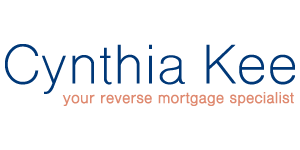[Video] How Does a Reverse Mortgage Work?
“To keep the heart unwrinkled—to be hopeful, kindly, cheerful, reverent—that is to triumph over old age.” – Thomas Bailey Aldrich
A reverse mortgage is a powerful financial tool that can help you in retirement. Below is a video that explains the basics about reverse mortgages, how they function, who they are for, the pros and cons, and how the application process works. Please Contact Cynthia at 707-812-2102 for a personalized complimentary review.
A reverse mortgage lets the borrower convert part of their home’s equity into cash without selling the house or making monthly mortgage payments. Typically, when you’re older, you may not owe that much on your home, and you may have built up a lot of equity, in which case you may be able to pull more money out of it.
Unlike a conventional mortgage, where you make monthly payments to the lender, in this case, the reverse mortgage lender pays loan proceeds to you. You will be required to pay for things like property taxes, homeowner’s insurance, the upkeep of the property, and other obligations outlined in the terms of your loan agreement.
Who Qualifies for a Reverse Mortgage?
Reverse mortgages are specifically designed for older borrowers. This option is generally only available to people 62 and older who meet the following basic criteria:
You must be listed on your home’s title as the owner.
Your income and credit clear a financial evaluation.
Your home is your primary residence for the life of the reverse mortgage.
You cannot be delinquent on any federal debt.
Eligibility Requirements
Reverse mortgages require borrowers to meet a specific set of requirements. To be eligible, you must:
Meet with a reverse mortgage counselor who’s approved through HUD before you apply to discuss how a reverse mortgage works and fees associated with it.
Be able to show you can pay your property taxes, condo association fees, and home insurance, as well as keep up with maintenance and repairs.
Make timely payments on property taxes and flood and hazard insurance.


